Should heritage brands be afraid of private label? The jury is still out as Private Label is certainly having its moment in the spotlight. Fueled by factors like inflation and dwindling brand loyalty, private label is making waves across major consumer product categories. And it’s not just about snagging a bargain, consumers are flocking to it for its impressive quality, high standards, innovative ingredients, and fresh ideas. Private Label is capturing consumer attention, with Mintel research revealing that nearly seven in ten US adults are more open to shopping private label brands this year, and more than half plan to buy even more in the future. In fact, the majority of consumers are now seeking out store brands before even considering name brands.
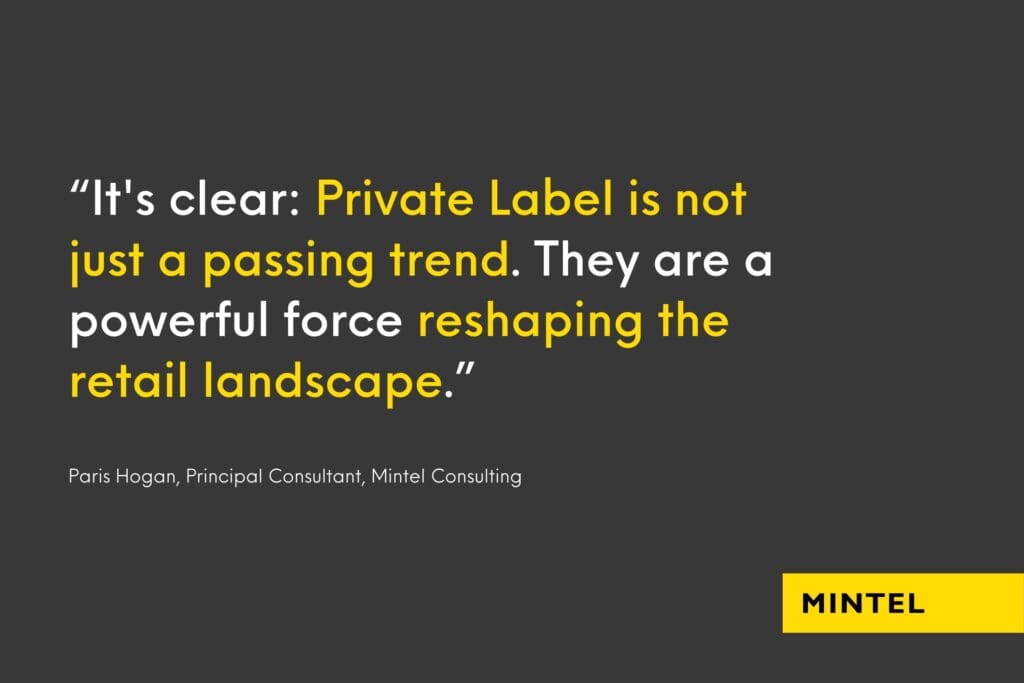
The Growing Appeal of Private Label
Private Label products, once dismissed as mere ‘bargain items,’ are now showing they are anything but inferior. With a focus on enhanced branding, eye-catching packaging, and exciting flavors, retailers are clearly investing heavily in their store brands. Today, buying private label items is about more than just saving money, it’s about the personal satisfaction of making a smart choice. In the US, a striking six in ten private label shoppers feel like savvy consumers, and more than half take pride in using store brand items.
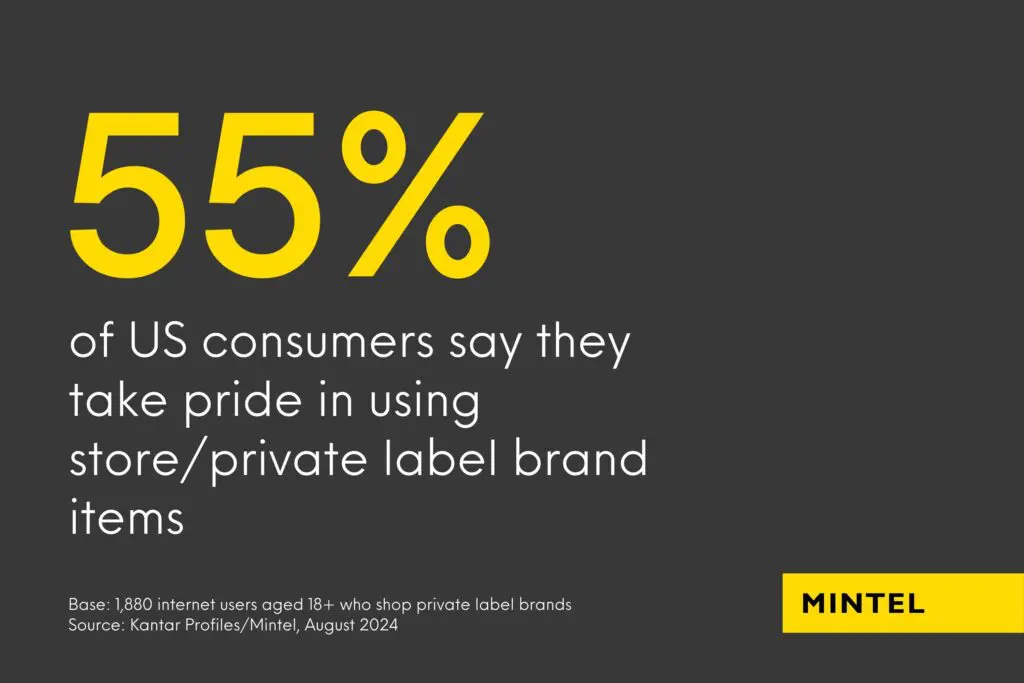
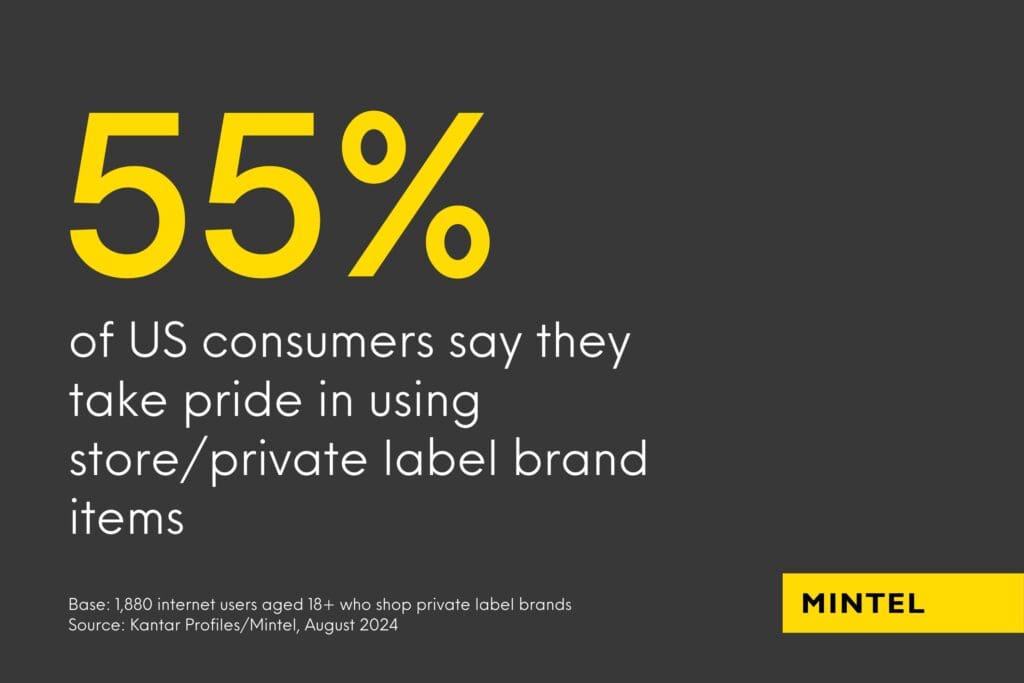
This growing loyalty is hard to compete with, although not every store brand hits the mark, as many consumers remain selective, purchasing store brands only from certain retailers. Moreover, private label products are drawing shoppers in, with nearly six in ten US consumers choosing to shop at specific retailers because of their appealing store brands. It’s clear that private label is carving out a significant and lasting presence in the retail landscape.
Private Label products are taking the consumer world by storm, particularly in categories like food items, household essentials, OTC meds and vitamins, clothing, personal care, and beverages. These categories have witnessed a surge in private label popularity, thanks to their ability to deliver exceptional value with minimal quality trade-offs compared to national brands. No longer a one-time purchase, private label in these top categories boast strong engagement and widespread satisfaction, with over half of shoppers eager to buy from them again.
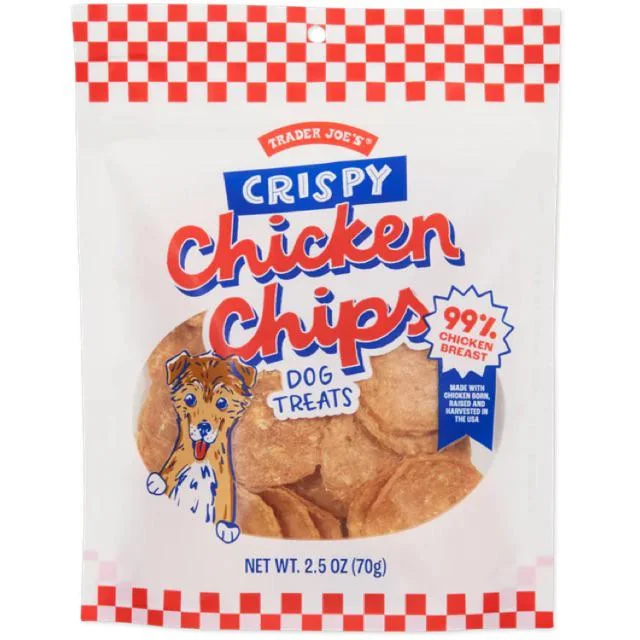

Source: Mintel GNPD


Source: Mintel GNPD
Private Label Goes from Generic to Trendy
Once something to keep under wraps, private label has transformed into brands that consumers proudly flaunt. Among younger consumers, they’re even considered ‘cool.’ Gen Z wear Costco’s Kirkland sweatshirts, and brands like Target‘s Favorite Day embrace the latest trends, flavors, and limited-time offers, making them must-haves in shopping carts.
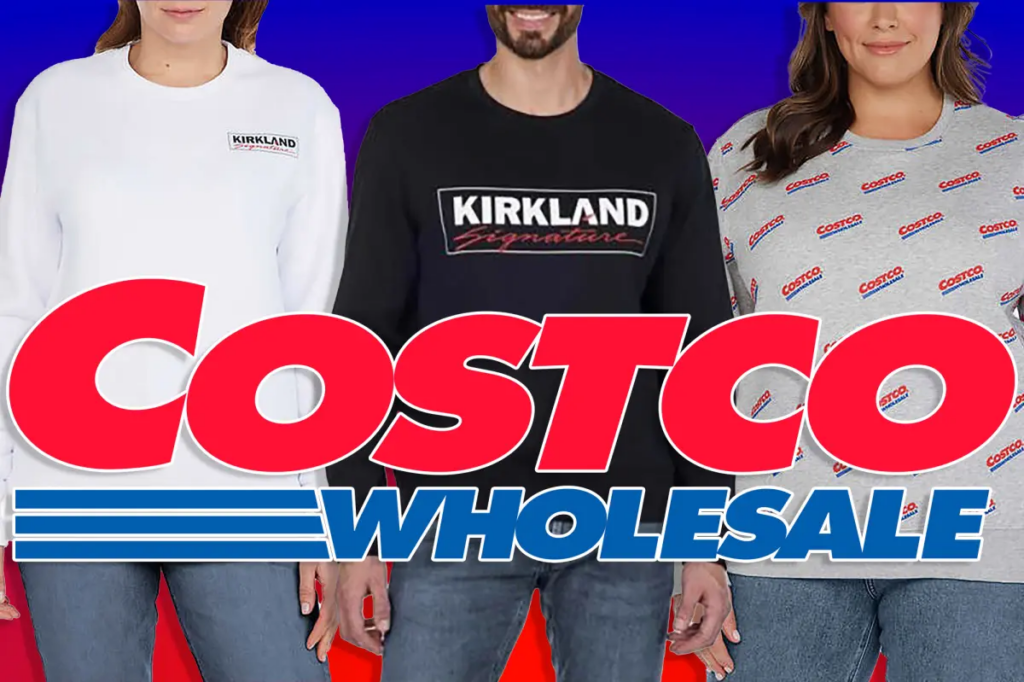
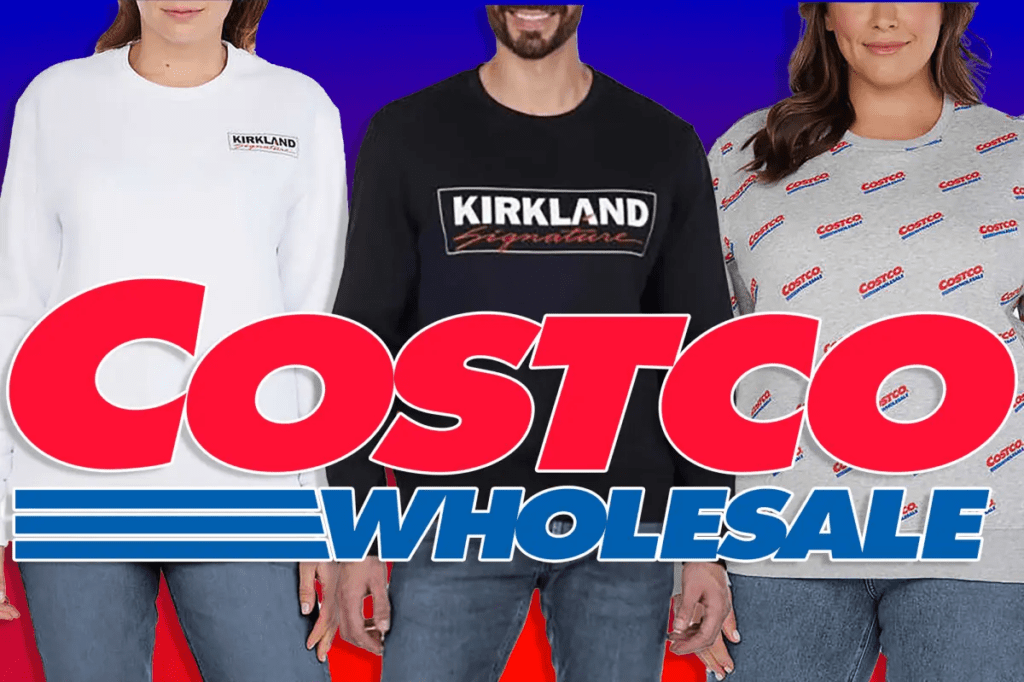
Source: Costco.com
Walmart‘s new bettergoods brand focuses on “quality, trend-forward, and chef-inspired food,” proving that to attract and retain consumers, differentiation and unique value are key. Private Label brands are not just following trends; they’re setting them. While Trader Joe’s has long been a ‘trendy’ private label player, others are carving out their niches. Walgreens‘ ‘Premium Skin Care’ taps into the demand for quality skincare at half the price, Dillard’s Kinesis line of athleisure wear rides the wave of comfortable, anytime athletic-wear, and Sprouts Farmers Market caters to health-conscious shoppers.
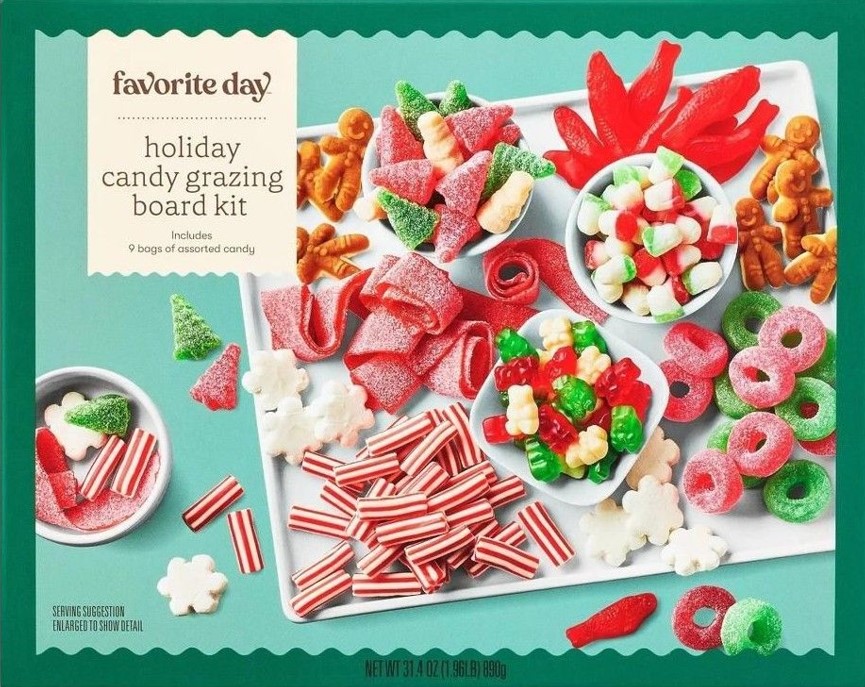

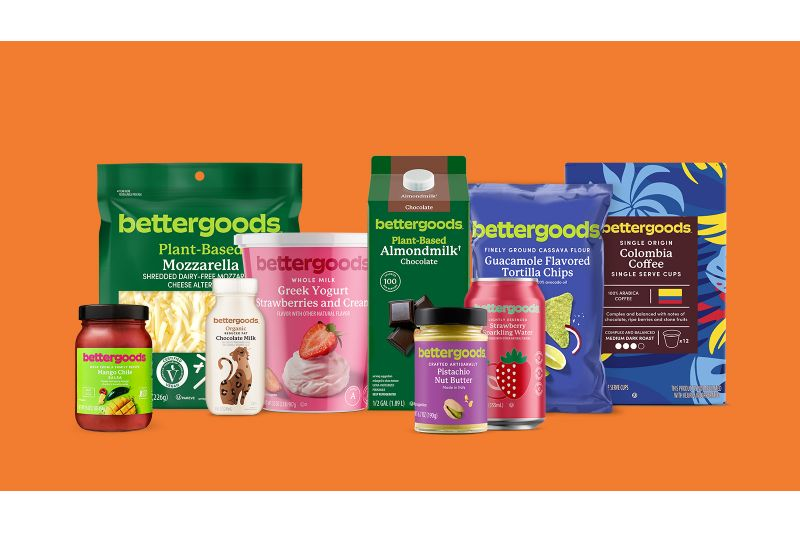

Overall, consumers are hungry for private label products, with certain demographics leading the charge. Parents are significant buyers, with nearly seven in ten planning to purchase more private label brandss, especially in family-supportive categories like beauty items, furniture, toys and games, and baby items. Baby Boomers are true private label ambassadors, with three-fourths believing that store brands offer better value than name brands and that brand names aren’t always higher quality.
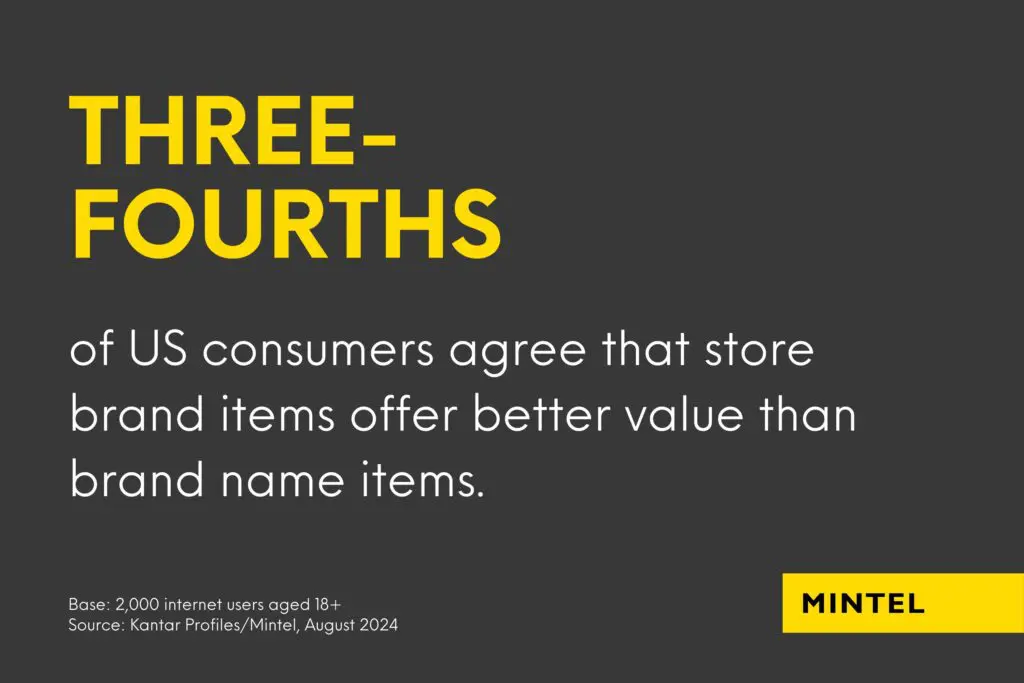
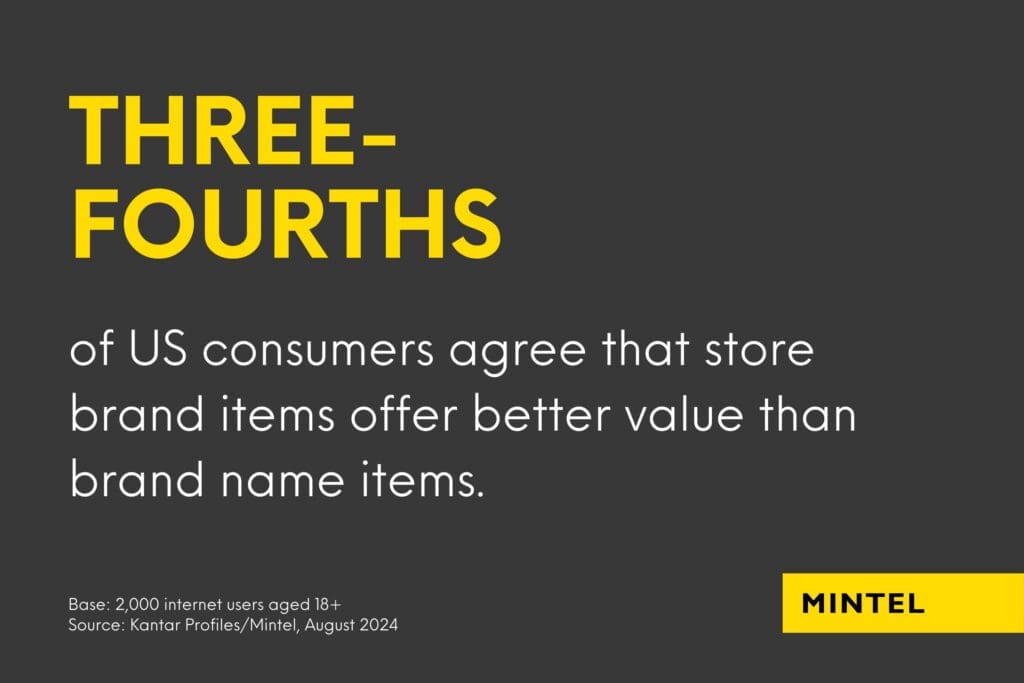
What we think
Private Label is on a roll, with no signs of slowing, and the introduction of new tariffs could serve as a pivotal moment for consumers to fully embrace private label products. For those who have been hesitant, the increasing cost of goods might just be the nudge needed to make the switch.
As the additional costs of imports are likely transferred to consumers, they may, in turn, opt for more affordable alternatives, potentially sidelining branded goods. This shift could be particularly impactful in categories where consumers have traditionally been wary of private label offerings, such as beauty and personal care. If prices continue to climb, consumers might finally be compelled to choose private label.
The imposition of tariffs could effectively narrow the price gap between private label and branded products, potentially elevating branded items to the status of luxury goods. This scenario raises the question: Could branded products become an indulgence rather than a staple in consumers’ shopping baskets?
Want to know more? Just ask us
Here at Mintel, we are experts in innovation. We’re already identifying many of these trends through our expert analysts and by tracking product launches on our Global New Products Database (GNPD). From changes in ingredient and claims architecture to broader scanning of consumer trends, Mintel Consulting can help you identify what’s already happening in your sector, predict what’s coming next, and understand what it means for your business’s strategy.
Get in touch today with Mintel Consulting to learn more about how we can use our methods to help drive your growth strategies.